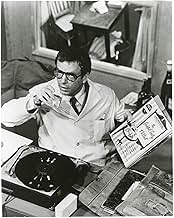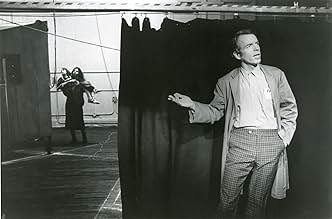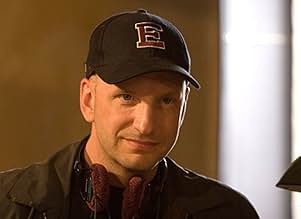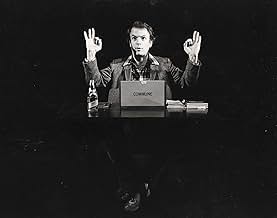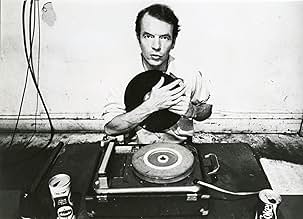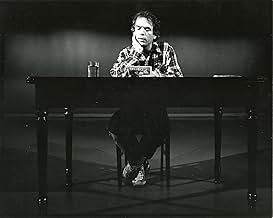IMDb RATING
7.1/10
1.3K
YOUR RATING
A look at the art of Spalding Gray who drew from real life experience to create a compelling and deeply personal series of monologues.A look at the art of Spalding Gray who drew from real life experience to create a compelling and deeply personal series of monologues.A look at the art of Spalding Gray who drew from real life experience to create a compelling and deeply personal series of monologues.
- Awards
- 1 nomination
Forrest Gray
- Self
- (archive footage)
- (uncredited)
Kathie Russo
- Self
- (archive footage)
- (uncredited)
Storyline
Did you know
- TriviaThis film is part of the Criterion Collection, spine #617.
- ConnectionsFeatures Spalding Gray: A Life in Progress (1988)
- SoundtracksTubthumping
Written by Danbert Nobacon, Dunstan Bruce, Alice Nutter, Louise Watts, Paul Greco, Darren Hammer, Allen Whalley and Judith Abbot
Performed by Chumbawamba
Featured review
A mind like Spalding Gray's was full of inquiry, mostly into himself. This was more than alright as by the looks of And Everything is Going Fine he was a master storyteller and orator. He originally wanted to be an actor and trained in that for many years (eventually getting lackluster parts on off-Broadway and, even at one point, a porno role). But his best role in his life was... himself really, as Steven Soderbergh takes to task with a multitude of video clips, interviews and little asides like one he had with his father in the 90's. He could be incredibly neurotic, and had a family with a history of suicide and mental illness and depression, but he someone made his sad lemons into bittersweet lemonade. His monologues were full of life and humor, little details and observations like in the best prose. In a sense this makes And Everything's Going Fine a movie where talk and stories takes us to other places and situations (it may not be an accident that one of Gray's big influences was Andrew Gregory of My Dinner With Andre).
We get to see the full nature of the man, of at least as much as could be seen in interview clips (albeit Gray is nothing but candid even with a guy from E! News), stemming from a home life that would have been normal if not for his overbearing and crazy mother who left him all too early from life. And along with the acting bug that hit him we also get told his time spent in India, and his sort of search to "find" himself, leading up to the monologues that he started to do in 1979. It was almost like an experiment in self-expression, and if he wasn't as funny as a Woody Allen New York style guy he had much more candor. Eventually we also hear about his love life, and the ups and downs of his relationship that led to him leaving her for his wife and son after a revelation eight months into the little guy's life.
Soderbergh is generous to Gray, his legacy and his attitude towards life and himself which wasn't always pretty. Maybe he understood how far to go with the footage- apparently he didn't show his much darker mood after his sudden accident that led to his suicide in 2004. But at the same time that this is a 'character' study, and that character being Mr. Spalding Gray, it's also an epic story of a life (he calls himself a method actor in a way, which caused some problems as the monologues went on and on and Q&A's had to be done with the audience). Some of Gray's points may be redundant after a while- we get it, you're a depressive, you have mother issues, woman issues, are a little crazy but have a good sense of humor about it- but I never got tired of hearing what he would say next, and always with eloquence and intelligence. Gray was the kind of guy whose mind was always moving and it looked like he was thinking as he answered questions even as he talked so fast. He was one of a kind, and this is a fine, personal tribute.
We get to see the full nature of the man, of at least as much as could be seen in interview clips (albeit Gray is nothing but candid even with a guy from E! News), stemming from a home life that would have been normal if not for his overbearing and crazy mother who left him all too early from life. And along with the acting bug that hit him we also get told his time spent in India, and his sort of search to "find" himself, leading up to the monologues that he started to do in 1979. It was almost like an experiment in self-expression, and if he wasn't as funny as a Woody Allen New York style guy he had much more candor. Eventually we also hear about his love life, and the ups and downs of his relationship that led to him leaving her for his wife and son after a revelation eight months into the little guy's life.
Soderbergh is generous to Gray, his legacy and his attitude towards life and himself which wasn't always pretty. Maybe he understood how far to go with the footage- apparently he didn't show his much darker mood after his sudden accident that led to his suicide in 2004. But at the same time that this is a 'character' study, and that character being Mr. Spalding Gray, it's also an epic story of a life (he calls himself a method actor in a way, which caused some problems as the monologues went on and on and Q&A's had to be done with the audience). Some of Gray's points may be redundant after a while- we get it, you're a depressive, you have mother issues, woman issues, are a little crazy but have a good sense of humor about it- but I never got tired of hearing what he would say next, and always with eloquence and intelligence. Gray was the kind of guy whose mind was always moving and it looked like he was thinking as he answered questions even as he talked so fast. He was one of a kind, and this is a fine, personal tribute.
- Quinoa1984
- Jan 3, 2011
- Permalink
- How long is And Everything Is Going Fine?Powered by Alexa
Details
- Release date
- Country of origin
- Official site
- Language
- Also known as
- Untitled Spalding Gray Project
- Production company
- See more company credits at IMDbPro
Box office
- Gross US & Canada
- $22,080
- Opening weekend US & Canada
- $7,035
- Dec 12, 2010
- Gross worldwide
- $22,080
- Runtime1 hour 29 minutes
- Color
- Aspect ratio
- 1.33 : 1
Contribute to this page
Suggest an edit or add missing content

Top Gap
By what name was And Everything Is Going Fine (2010) officially released in Canada in English?
Answer

